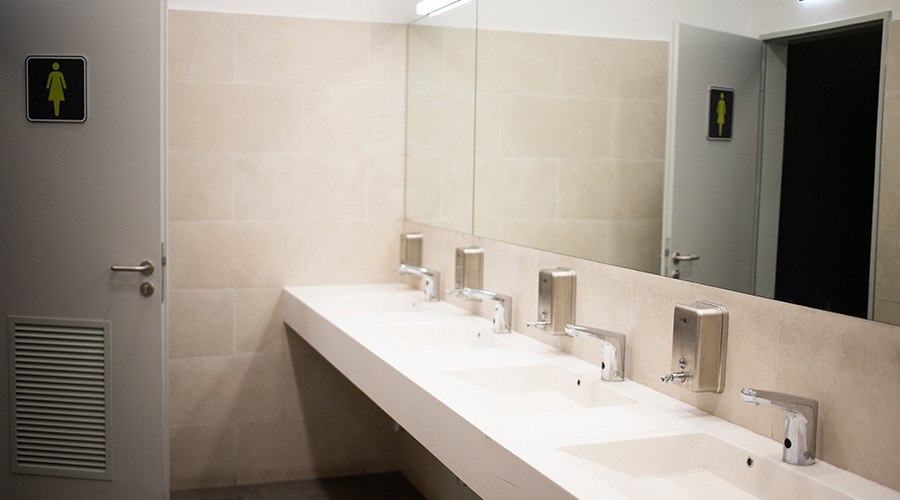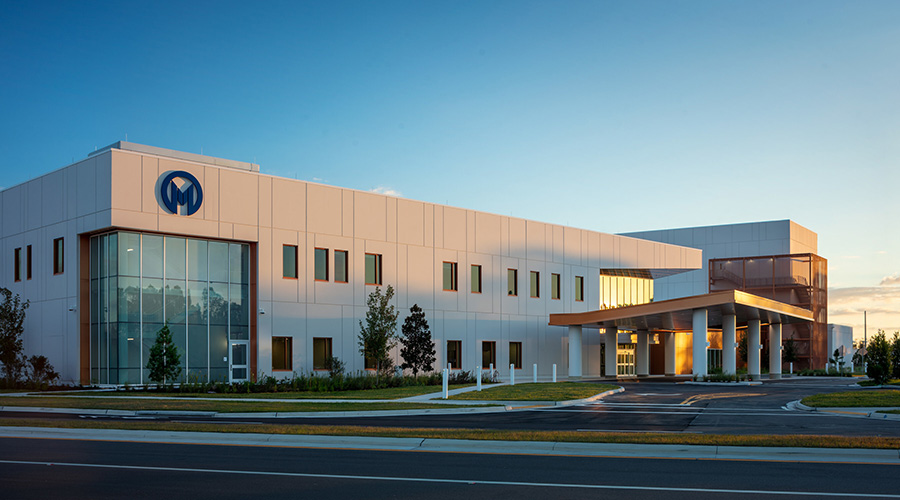Lawns are essentially like a welcome mat to visitors of healthcare facilities. Proper groundskeeping and lawncare make for a clean and vibrant lawn. In addition, healthcare facilities managers are always looking to keep these processes efficient. That is why in this manufacturer roundtable, Healthcare Facilities Today speaks with leading lawn mower manufacturers about if facilities managers should switch their mowers from gas-powered to electric.
Should healthcare facilities managers consider switching from gas-powered to electric mowers?
“Battery-powered lawn care equipment is much more environmentally friendly than traditional gas-powered equipment. They produce no emissions and are much quieter, which reduces noise pollution. By switching to battery-powered equipment, healthcare facilities can reduce their carbon footprint and contribute to a cleaner environment.
Battery-powered equipment is often more expensive to purchase initially, but they save money in the long run. Battery-powered equipment doesn’t require gas or oil, which can add up over time. Additionally, because they require less maintenance, they have a lower lifetime cost.
Healthcare facilities have an obligation to maintain a safe and healthy environment for their patients and staff. Battery-powered equipment produces no emissions, which means that there is no risk of carbon monoxide poisoning or other harmful pollutants. Additionally, battery-powered equipment is much quieter than traditional equipment, which reduces noise pollution and improves the quality of life for patients and staff.
Battery-powered equipment is also more efficient than traditional equipment. They have longer runtimes and can cover larger areas on a single charge. Additionally, because they require less maintenance, staff can spend less time performing routine maintenance tasks and more time caring for patients. Battery-powered equipment is generally safer to use than traditional equipment. There is no risk of fluid leaks, and they are generally lighter and easier to maneuver, reducing the risks of accidents.
Because battery powered equipment is quieter, staff can communicate more effectively and be more aware of their surroundings, reducing the risk of accidents. Less noise is also a desired feature shared by many institutions and sites. Site Management – the facility will gain one LEED point by using battery-powered equipment in all site management operations according to the LEED Building Operations and Maintenance Manual.
In summary, healthcare facilities should consider adding battery-powered lawn care equipment to their arsenal of tools. The environmental, cost savings, health benefits, increased efficiency, and improved safety all make battery-powered equipment a wise investment.”
— Per Kvarby, vice president product management and marketing, and Claudia Martinez, operations senior manager, Greenworks Commercial
“While there has been quite a bit of buzz about the electrification of mowers, many manufacturers are a few years away from offering power-for-power, spec-for-spec options that compare with gasoline- or diesel-powered mowers.
Gasoline- and diesel-powered zero turn mowers continue to lead the landscaping industry in power and reliability. Electric-powered zero turn mowers are becoming more prevalent, but they do not yet offer the run time that a grounds crew needs to operate eight to 10 hours a day mowing large areas. An electric mower’s run time will diminish due to any variety of mowing conditions including heavy or wet grass and hilly terrain. Both gas- and diesel-powered mowers will run all day and stand up to the challenges of everyday mowing.
Gasoline mowers typically have the lowest upfront cost and manufacturers are constantly improving their fuel efficiency and extending or reducing service intervals. Diesel engines are even more efficient and powerful thereby reducing run times and fuel costs. Diesel engines run much longer than their gasoline counterparts. Plus, the purity of diesel fuel today far surpasses that of even five years ago, making this fuel very clean-burning, and is even approved for use on high-ozone days in many jurisdictions. When running your commercial mower day-in and day-out, do not overlook the fuel efficiency and longer engine life of a diesel mower.”
— Michael Simmon, marketing specialist, The Grasshopper Company
Jeff Wardon, Jr. is the assistant editor for the facilities market.

 What Lies Ahead for Healthcare Facilities Managers
What Lies Ahead for Healthcare Facilities Managers What's in the Future for Healthcare Restrooms?
What's in the Future for Healthcare Restrooms? Hammes Completes the Moffit Speros Outpatient Center
Hammes Completes the Moffit Speros Outpatient Center The Top Three Pathogens to Worry About in 2026
The Top Three Pathogens to Worry About in 2026 Blackbird Health Opens New Pediatric Mental Health Clinic in Virginia
Blackbird Health Opens New Pediatric Mental Health Clinic in Virginia